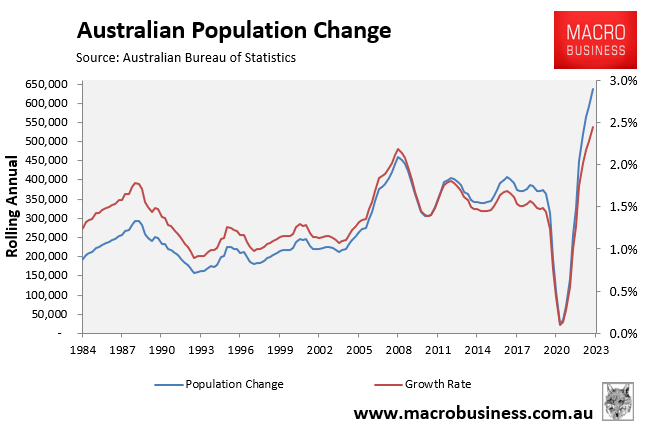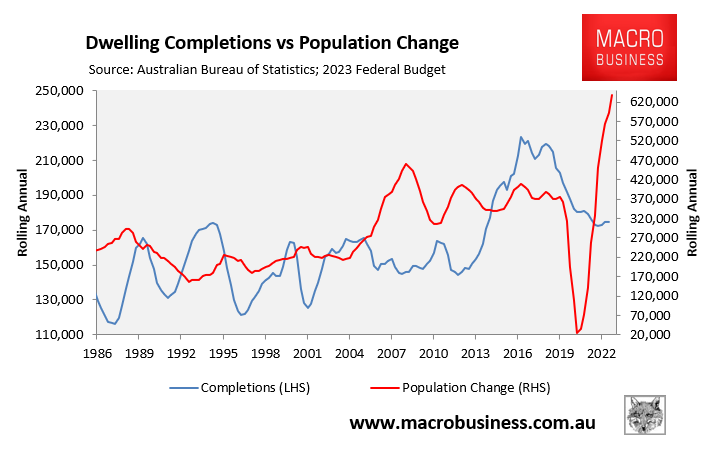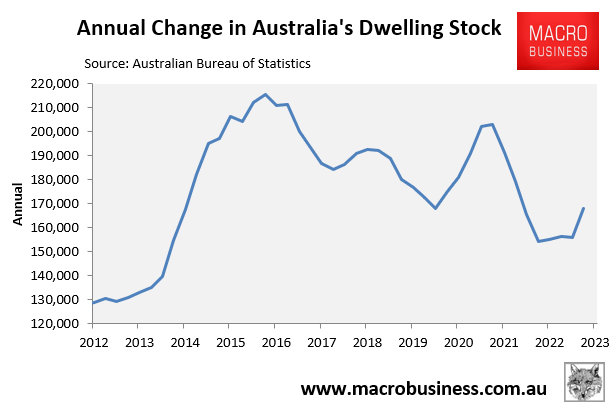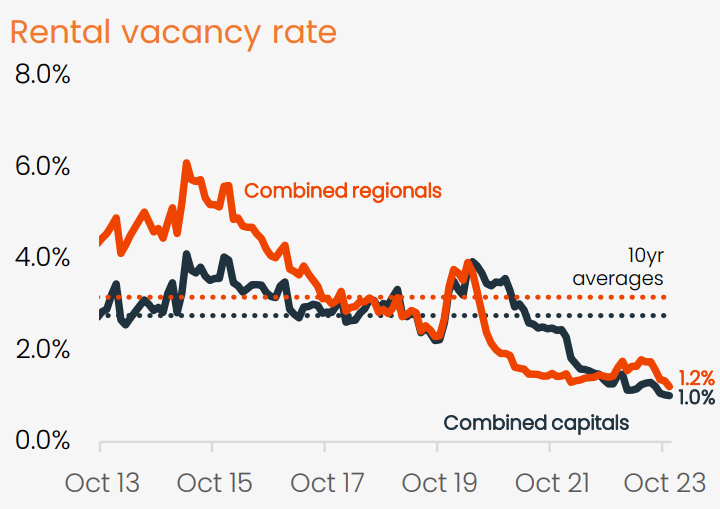Wednesday’s national accounts release from the Australian Bureau of Statistics (ABS) estimated that Australia’s population grew by 0.5% and 0.7% over the June and September quarters respectively.
If you input these growth figures into the ABS’ latest official population growth figures for the March quarter, it provides an estimate of the nation’s population increase to the end of September 2023:

As shown in the chart above, Australia’s population is estimated by the ABS to have grown by a record 638,300 over the year to September 2023, or by 2.4%.
The next chart plots this same population change numbers against actual dwelling completions, as provided by the ABS:

The 638,300 increase in Australia’s population in the year to September 2023 was against dwelling completions of only 172,300 over the year to June.
To add further insult to injury, the ABS also released estimates of net dwelling additions, which accounts for demolitions.
In the year to September 2023, Australia is estimated by the ABS to have added only 168,000 dwellings to Australia’s housing stock, which is way less than what is needed:

In fact, since the start of the series in September 2011, the best year for the increase in dwelling stock was the 12 months to September 2016 when the number of dwellings increased by 215,500.
This record year of housing supply in 2016 was nowhere near the Albanese government’s target of 1.2 million homes over five years, which requires 240,000 homes to be built every year.
Record population growth amid falling housing supply is a recipe for disaster, and explains why rental vacancy rates have collapsed to all-time lows and rental inflation is soaring:

Source: CoreLogic
The Albanese government must slash immigration. Otherwise, Australia is headed for a deepening housing crisis.

